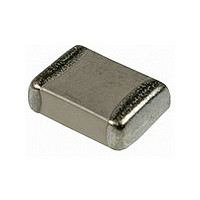GRM155R60J225ME15D Murata, GRM155R60J225ME15D Datasheet - Page 70

GRM155R60J225ME15D
Manufacturer Part Number
GRM155R60J225ME15D
Description
Manufacturer
Murata
Datasheet
1.GRM155R60J225ME15D.pdf
(220 pages)
Specifications of GRM155R60J225ME15D
Tolerance (+ Or -)
20%
Voltage
6.3VDC
Temp Coeff (dielectric)
X5R
Operating Temp Range
-55C to 85C
Mounting Style
Surface Mount
Construction
SMT Chip
Case Style
Ceramic Chip
Failure Rate
Not Required
Wire Form
Not Required
Product Length (mm)
1mm
Product Depth (mm)
0.5mm
Product Height (mm)
0.5mm
Product Diameter (mm)
Not Requiredmm
Capacitance
2.2uF
Package / Case
0402
Lead Free Status / RoHS Status
Compliant
Available stocks
Company
Part Number
Manufacturer
Quantity
Price
Company:
Part Number:
GRM155R60J225ME15D
Manufacturer:
SPANSION
Quantity:
1 000
2
!Note
• This PDF catalog is downloaded from the website of Murata Manufacturing co., ltd. Therefore, it’s specifications are subject to change or our products in it may be discontinued without advance notice. Please check with our
• This PDF catalog has only typical specifications because there is no space for detailed specifications. Therefore, please approve our product specifications or transact the approval sheet for product specifications before ordering.
sales representatives or product engineers before ordering.
!Note
68
No.
10
GNM Series Specifications and Test Methods (1)
GNM Series Specifications and Test Methods (1)
1
2
3
4
5
6
7
8
9
Operating
Temperature
Range
Rated Voltage
Appearance
Dimensions
Dielectric Strength
Insulation
Resistance
Capacitance
Q/
Dissipation Factor
(D.F.)
Capacitance
Temperature
Characteristics
Adhesive Strength
of Termination
• Please read rating and !CAUTION (for storage, operating, rating, soldering, mounting and handling) in this catalog to prevent smoking and/or burning, etc.
• This catalog has only typical specifications because there is no space for detailed specifications. Therefore, please approve our product specifications or transact the approval sheet for product specifications before ordering.
Item
Capacitance
Change
Temperature
Coefficient
Capacitance
Drift
5C: –55 to +125 C
See the previous pages.
No defects or abnormalities
Within the specified dimensions
No defects or abnormalities
More than 10,000M or 500 · F
(Whichever is smaller)
Within the specified tolerance
30pF min.: QU1000
30pF max.:
C: Nominal
Within the
specified tolerance
(Table A)
Within the
specified tolerance
(Table A)
Within 0.2%
(Whichever is
larger.)
No removal of the terminations or other defect should occur.
Compensating Type
Capacitance (pF)
Temperature
QU400+20C
or 0.05pF
GNMpp4
b
a
Copper foil
In case Non "*" is added in PNs table, please refer to GNM Series Specifications and Test Methods (1).
R7, C7: –55 to +125 C
R6: –55 to +85 C
R7, R6,
C7
Solder resist
Char. 25V min.
Char.
Specifications
R7
R6
C7
In case "*" is added in PNs table, please refer to GNM Series Specifications and Test Methods (2).
to +125 C
to +125 C
0.025
to +85 C
max.
High Dielectric Type
Temp.
Range
–55 C
–55 C
–55 C
GNMpp2
b
a
0.035
max.
16V
Reference
Copper foil
Solder resist
Temp.
25 C
0.035
max.
10V
Change
Within
Within
Cap.
15%
22%
max.
6.3V
0.05
The rated voltage is defined as the maximum voltage which
may be applied continuously to the capacitor.
When AC voltage is superimposed on DC voltage, V
whichever is larger, should be maintained within the rated
voltage range.
Visual inspection
Using calipers
No failure should be observed when 300% of the rated voltage
(5C) or 250% of the rated voltage (R7) is applied between the
terminations for 1 to 5 seconds, provided the charge/discharge
current is less than 50mA.
The insulation resistance should be measured with a DC
voltage not exceeding the rated voltage at 25 C and 75%RH
max. and within 2 minutes of charging.
The capacitance/Q/D.F. should be measured at 25 C at the
frequency and voltage shown in the table.
The capacitance change should be measured after 5 min. at
each specified temperature stage.
(1) Temperature Compensating Type
The temperature coefficient is determined using the capaci-
tance measured in step 3 as a reference. When cycling the
temperature sequentially from step1 through 5, the capacitance
should be within the specified tolerance for the temperature
coefficient and capacitance change as Table A.
The capacitance drift is calculated by dividing the differences
between the maximum and minimum measured values in the
steps 1, 3 and 5 by the cap. value in step 3.
(2) High Dielectric Constant Type
The ranges of capacitance change compared with the above
25 C value over the temperature ranges shown in the table
should be within the specified ranges.
• Initial measurement for high dielectric constant type.
Solder the capacitor to the test jig (glass epoxy board) shown in
Fig.1 using a eutectic solder. Then apply 5N force in parallel with
the test jig for 10 1 sec.
The soldering should be done either with an iron or using the
reflow method and should be conducted with care so that the
soldering is uniform and free of defects such as heat shock.
Perform a heat treatment at 150+0/-10 C for one hour and
then set for 24 2 hours at room temperature.
Perform the initial measurement.
Item
Frequency
Voltage
Step
GNM1M2
1
2
3
4
5
GNM212
GNM214
GNM314
Type
Char.
–55 3 (for 5C/R7/C7), –30 3 (for F5)
125 3 (for 5C/R7/C7), 85 3 (for F5)
0.5 to 5Vrms
1 0.1MHz
0.5
0.6
0.6
0.8
a
Test Method
5C
Temperature ( C)
Fig. 1
Continued on the following page.
1.6
1.8
2.0
2.5
25 2
25 2
25 2
b
0.32
0.25
1.0 0.2Vrms
0.5
0.4
c
1 0.1kHz
R7
P-P
0.32
0.25
(in mm)
0.5
0.4
or V
d
O-P
,
C02E.pdf
09.9.18












